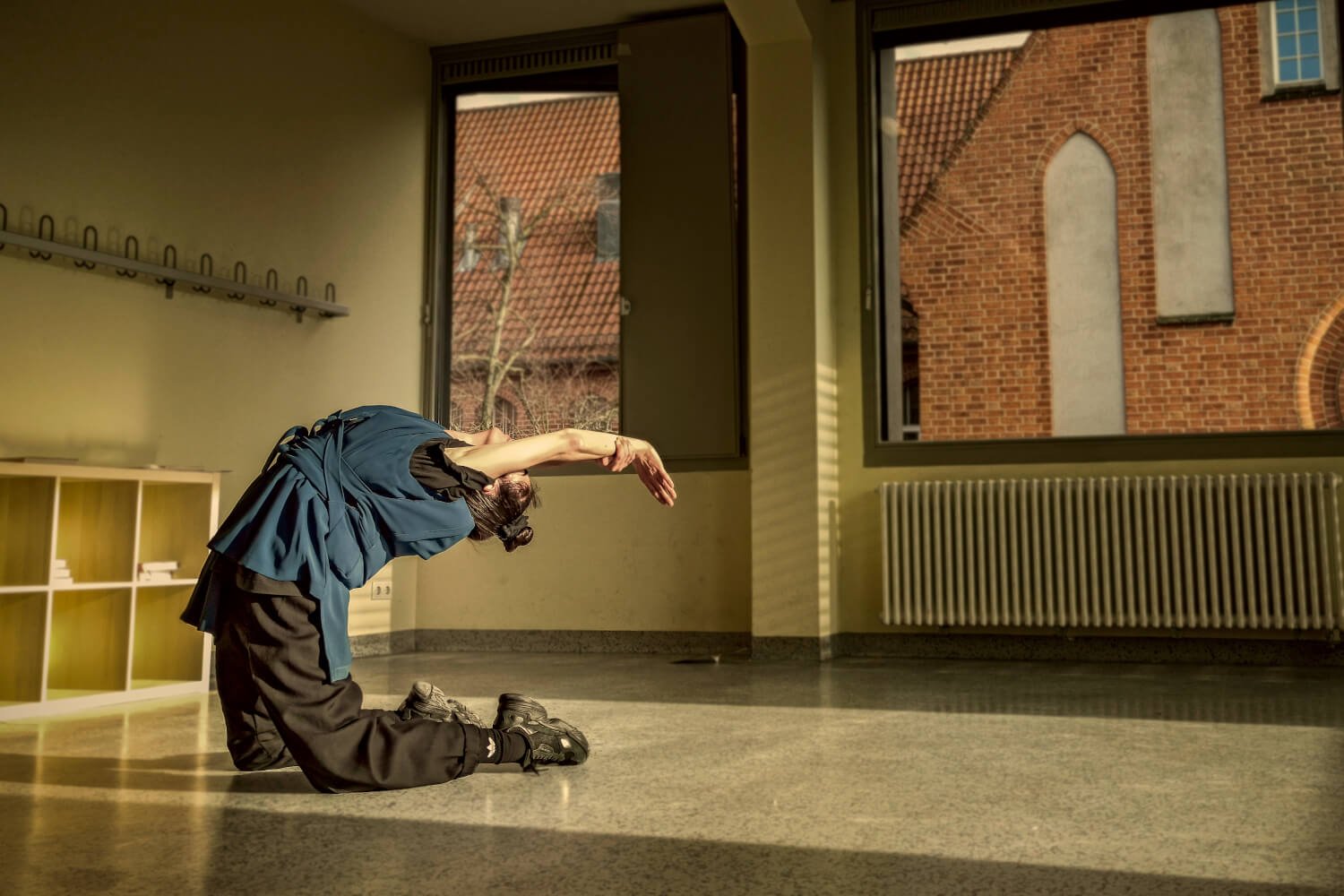
Do we still need heroes? Who are they? What do they mean to us in our everyday life?
Patricia Apergi and the dancer Eva Georgitsopoulou investigated contemporary heroes of our society and transformed their narratives into movement.
Hero speaks for the people who turned their defeat into victory and those who became heroes without noticing. It shows the courage, effort, perseverance and strength needed to take up any fight. Powerful, courageous, energetic and with humour.
Hero refers to a society where effort and strength become the protagonists. Whose citizens have wasted all of their smiles in battle, until they realized they had nothing more left.
Or could it be that, through defeat, they won everything?
What is of most value: the fight or its outcome?
Can one emerge as a hero from a failure?
Can we dare to speak for our future? And can this future turn heroic?
In Hero, we try things multiple times. Either in the same way, with obsessive repetition, or through different approaches each time. In order to discover identity, class, relationships, history, the future.
All these, through a fight.
The symbol of everyday battle.
And in this fight, dance becomes the instrument of resistance to all of our fears and at the same time the vehicle to exchange stories and narratives.
A motive to keep fighting, the encouragement to keep dancing.
Dance becomes the weapon to make peace with failure.
And then try again.
The performance, through the study of modern historians and writers (Edouard Said, Dimitris Dimitriades, Edouard Glissant, Kostis Karpozilos), uses the heritage of greek mythology, wishing to define a poetic policy. It draws upon the mythological rhizomes but studies more modern discussions and speculations relevant to the meanings of homeland, society and policies of the world.
More specifically, the piece is inspired from the myth of Mnemosyne*, who was one of the Titans in the ancient Greek mythology. Titans were gods that have been defeated. However, Mnemosyne, despite her defeat and her fall to the Tartarus, she gave birth to the Muses, the goddesses of Arts.
For the piece, the connection with history and memory is inevitable. Because we cannot speak for the future, if we do not hear the past.
In Hero, the sense of the citizen we thought we knew has changed, almost disappeared. We now refer to a society, where classes are shifting, gender identities are redefined and individualities through psychological and physical distress are blunted.
Change does not mean defeat. It may cause chaos or bring violence, but in order to get a foothold, change means battles and struggles full of passion and visions. And this is how the contemporary heroes will be born!
Within these non-identifiable societies, modern heroes of the world, listen to the last blares / sirens of their well-known reality. Because from now on every battle will be different from those recorded so far.
Besides our fights are dedicated to the children who have not been born yet. And that's what makes our future bloom once again!
Our future is now!
Choreography & concept Patricia Apergi
Dancer Eva Georgitsopoulou
Sound design Giwrgos Poulios
Dramaturgy Nikos Vlasopoulos
Costume design Vassiliki Syrma
Production Dörte Wolter
International distribution Simge Gücük
Commissioned by TANZPAKT Stadt-Land-Bund
1. Mnemosyne: Was one of the Titans.
In Greek mythology, Titans are the children of Uranus (Heaven) and Gaea (Earth). According to Hesiod’s Theogony, there were 12 original Titans. At the instigation of Gaea the Titans rebelled against their father, who had shut them up in the underworld (Tartarus). Under the leadership of Cronus, they deposed Uranus and set up Cronus as their ruler. But one of Cronus’ sons, Zeus, rebelled against his father, and a struggle then ensued between them in which most of the Titans sided with Cronus. Zeus and his brothers and sisters finally defeated the Titans after 10 years of fierce battles (the Titanomachia).
The titans were then hurled down by Zeus and imprisoned in a cavity beneath T artarus.
Mnymosyne is the goddess of memory and remembrance.
She is the mother of the 9 Muses, the inspirational goddesses of literature, science and the arts.





















